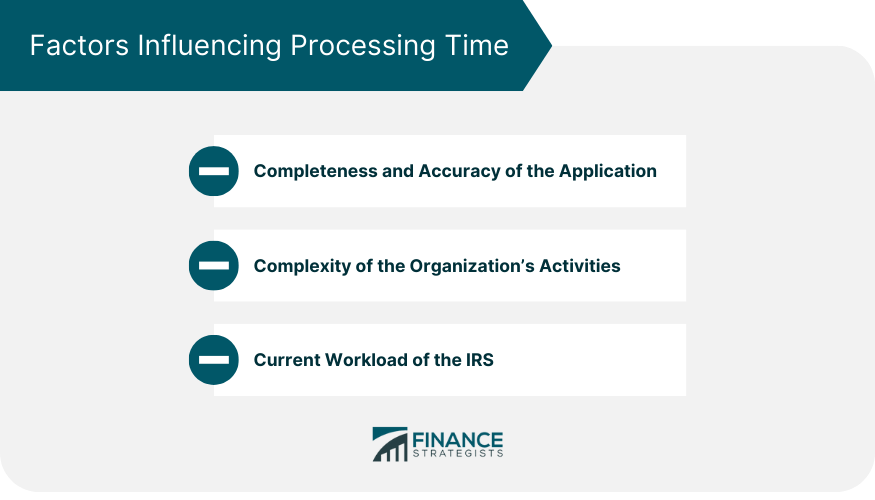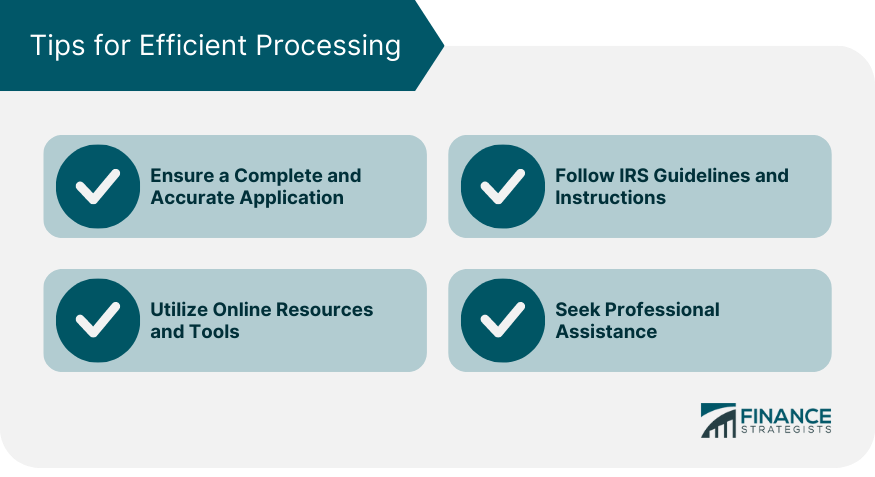What Is a 501(c)(3) Determination Letter?
A 501(c)(3) determination letter is an official document from the Internal Revenue Service (IRS) confirming an organization's status as a tax-exempt entity under section 501(c)(3) of the Internal Revenue Code.
This letter affirms that the organization is exempt from federal income tax and that contributions to it are tax-deductible.
Securing a 501(c)(3) determination letter has significant advantages for a nonprofit organization. It not only exempts the entity from federal income tax but also enables donors to make tax-deductible contributions.
Moreover, this letter often serves as essential proof of tax-exempt status when applying for grants and soliciting corporate donations.
Getting a 501(c)(3) Determination Letter
After applying with the IRS for 501(c)(3) status, it may take between 3 and 6 months to get a determination letter confirming approval. The amount of time you can expect depends on the scale of the operation; it is not unheard of for some of the largest to take 12 months.
The IRS provides a general estimate of the processing time, usually stating that applicants should expect to wait at least 180 days.
The processing time for a 501(c)(3) determination letter depends on various factors, including the IRS's workload, the complexity of your organization, and the completeness of your application.
Factors Influencing Processing Time
A multitude of elements can influence the processing time for a 501(c)(3) determination letter.
Completeness and Accuracy of the Application
A key factor impacting the processing time is the completeness and accuracy of the application. An application that is thorough and error-free can expedite the review process.
Complexity of the Organization's Activities
The complexity of an organization's activities can also affect the timeline. If your organization's operations are complicated or unconventional, the IRS may require more time to understand and assess your application.
Current Workload of the IRS
Lastly, the processing time can be influenced by the IRS's current workload. During peak times, or when the IRS is understaffed, processing times can stretch beyond the average timeframe.

Expedited Processing Options
In certain situations, organizations may seek an expedited review of their application.
IRS Expedited Process for Emergencies
The IRS may expedite the processing of an application in case of an emergency. However, to qualify, the organization must demonstrate compelling reasons, such as pending grants dependent on the 501(c)(3) status, which would otherwise be lost.
Expedited Handling for Certain Types of Organizations
Some types of organizations may qualify for expedited processing. These typically include churches, schools, and public charities with broad public support.
Tips for Efficient Processing
While you can't control all factors influencing the processing time, there are ways to facilitate the process.
Ensuring a Complete and Accurate Application
One of the best ways to speed up the process is to submit a complete and accurate application. Review the form meticulously to ensure that you've filled in all required fields and attached all necessary documentation.
Following IRS Guidelines and Instructions
Adherence to IRS guidelines and instructions is crucial for efficient processing. Failing to comply with these rules can lead to delays, queries, or even rejection of the application.
Utilizing Online Resources and Tools
Several online resources and tools can help guide you through the application process. These include the IRS website, nonprofit sector resources, and application guides.
Seeking Professional Assistance, If Needed
If the application process seems overwhelming, consider seeking professional assistance. Tax advisors or attorneys with experience in nonprofit law can provide valuable guidance and support.

Conclusion
The 501(c)(3) determination letter is a cornerstone document for nonprofit organizations. It affirms the organization's tax-exempt status and paves the way for tax-deductible contributions.
Typically, the average processing time for a 501(c)(3) application ranges from 3 to 6 months. However, this is only an estimate, and the actual timeframe can vary significantly.
Several factors, including the completeness of the application, the complexity of the organization, and the IRS's workload, affect the processing time of the determination letter.
Understanding the importance of a 501(c)(3) determination letter, being aware of the processing time and influencing factors, and seeking professional assistance when necessary can equip nonprofits to navigate this process more smoothly.
How Long Does It Take to Get a 501(c)(3) Determination Letter? FAQs
A 501(c)(3) organization is a non-profit organization with tax exempt status that is dedicated to the general well-being of society.
After applying with the IRS for 501(c)(3) status, it may take between 3 and 6 months to get a determination letter confirming approval.
A 501(c)(3) organization is tax exempt so long as it remains true to its stated mission and remains compliant with the IRS.
501(c)(3) is the internal revenue code (IRC) section for organizations with tax exempt status. 501(c)(3) falls under internal revenue code 501(c).
Yes, if you submit your application with expedited processing, the IRS will make every effort to review it within ten business days. However, there are no guarantees that you will receive a determination letter in this amount of time.
True Tamplin is a published author, public speaker, CEO of UpDigital, and founder of Finance Strategists.
True is a Certified Educator in Personal Finance (CEPF®), author of The Handy Financial Ratios Guide, a member of the Society for Advancing Business Editing and Writing, contributes to his financial education site, Finance Strategists, and has spoken to various financial communities such as the CFA Institute, as well as university students like his Alma mater, Biola University, where he received a bachelor of science in business and data analytics.
To learn more about True, visit his personal website or view his author profiles on Amazon, Nasdaq and Forbes.











